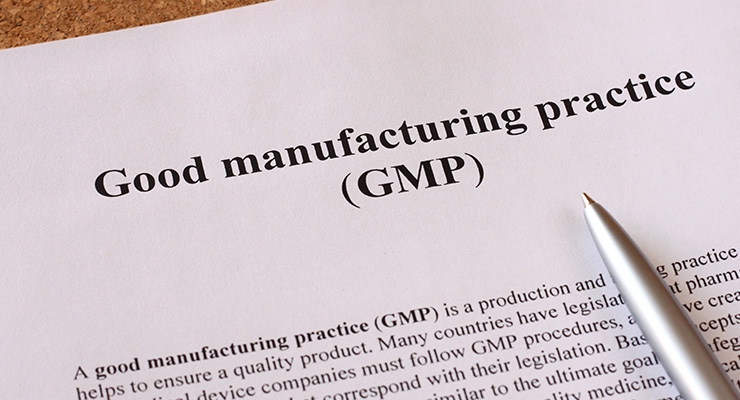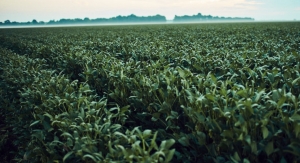By Todd Harrison, Venable09.07.17
Over the past several years, the Food and Drug Administration (FDA) has focused its attention on compliance issues related to the dietary supplement industry, generally, and on current good manufacturing practices (cGMPs), in particular. Indeed, we have seen an increase in the issuance of 483s and warning letters to Private Label Distributors (PLD) for failing to have adequate standard operating procedures related to cGMPs.
The Federal Food, Drug, and Cosmetic Act (FFDCA) prohibits a person from introducing or delivering for introduction, or causing the delivery or introduction, into interstate commerce a dietary supplement that is adulterated for failure to comply with dietary supplement cGMP requirements (FFDCA § 402(g)). The cGMP regulations are located in Title 21 of the Code of Federal Regulations, Part 111.
To be clear, a PLD is ultimately responsible for products introduced or delivered for introduction into interstate commerce carrying its name and must ensure that the company and products are in compliance with all FFDCA requirements and pertinent regulations. Therefore, along with establishing standard operating procedures (SOPs) the PLD must implement directly, it must also develop oversight SOPs to ensure its contract manufacturing and fulfillment companies are in compliance.
The cGMP regulations provide for broad and general requirements. To the extent that these regulations apply to the PLD, step-by-step how-to instructions and detailed explanations must be identified in the SOPs to implement the cGMP requirement. Below is a broad outline of both the direct and oversight SOPs that a PLD must develop.
Oversight SOPs
As indicated, the agency has issued several warning letters emphasizing the importance of oversight SOPs for dietary supplement cGMPs. The letters stated that a dietary supplement distributor using contract manufacturers or labelers may be liable for cGMP violations by its contractors, explicitly noting that “‘agents vested with the responsibility, and power commensurate with that responsibility, to devise whatever means necessary to ensure compliance with the [FFDCA]’ can be held accountable for violations of the [FFDCA].”
Though the PLD does not directly control the manufacturing and distribution of its products, it must have SOPs that ensure the oversight of product manufacture and distribution. Thus, oversight SOPs are an important component to demonstrate the PLD’s compliance with the relevant FDA regulations. These SOP’s should include:
1) In-Process Manufacturing Controls
5) Sample Approval and Shipping of Product
6) Finished Product Quarantine, Review, and Release
7) Product Rework
8) Employee Hygiene Standards
9) Facility Audits
10) Inventory Control
11) Change Control
14) Certificates of Analysis
15) Independent Testing Program
16) Information Technology Systems and Controls
18) Cleaning and Sanitation
19) Equipment Qualification, Use, and Maintenance
20) Pest Control
21) BSE Recordkeeping
Direct SOPs
In addition to the aforementioned oversight SOPs, the PLD should implement the direct SOPs listed below.
1) Introduction and Responsibilities
2) Employee Orientation and Training
3) Intake of Product Complaints
4) Investigation of Complaints
6) Product Recalls and Market Withdrawals
8) Vendor Selection and Review
9) Labeling Definitions and Standards
Where Should a PLD Start when Drafting SOPs?
As the PLD drafts its SOPs, the topics listed in this section should take priority. However, the PLD should take steps to ensure that all of the direct and oversight SOPs identified in this article are implemented.
Todd Harrison
Venable
Todd Harrison is partner with Venable, which is located in Washington, D.C. He advises food and drug companies on a variety of FDA and FTC matters, with an emphasis on dietary supplement, functional food, biotech, legislative, adulteration, labeling and advertising issues. He can be reached at 575 7th St. NW, Washington, D.C. 20004, Tel: 202-344-4724; E-mail: taharrison@venable.com.
The Federal Food, Drug, and Cosmetic Act (FFDCA) prohibits a person from introducing or delivering for introduction, or causing the delivery or introduction, into interstate commerce a dietary supplement that is adulterated for failure to comply with dietary supplement cGMP requirements (FFDCA § 402(g)). The cGMP regulations are located in Title 21 of the Code of Federal Regulations, Part 111.
To be clear, a PLD is ultimately responsible for products introduced or delivered for introduction into interstate commerce carrying its name and must ensure that the company and products are in compliance with all FFDCA requirements and pertinent regulations. Therefore, along with establishing standard operating procedures (SOPs) the PLD must implement directly, it must also develop oversight SOPs to ensure its contract manufacturing and fulfillment companies are in compliance.
The cGMP regulations provide for broad and general requirements. To the extent that these regulations apply to the PLD, step-by-step how-to instructions and detailed explanations must be identified in the SOPs to implement the cGMP requirement. Below is a broad outline of both the direct and oversight SOPs that a PLD must develop.
Oversight SOPs
As indicated, the agency has issued several warning letters emphasizing the importance of oversight SOPs for dietary supplement cGMPs. The letters stated that a dietary supplement distributor using contract manufacturers or labelers may be liable for cGMP violations by its contractors, explicitly noting that “‘agents vested with the responsibility, and power commensurate with that responsibility, to devise whatever means necessary to ensure compliance with the [FFDCA]’ can be held accountable for violations of the [FFDCA].”
Though the PLD does not directly control the manufacturing and distribution of its products, it must have SOPs that ensure the oversight of product manufacture and distribution. Thus, oversight SOPs are an important component to demonstrate the PLD’s compliance with the relevant FDA regulations. These SOP’s should include:
1) In-Process Manufacturing Controls
- The PLD must develop an SOP to oversee quality control personnel to ensure that manufacturing, packaging, labeling, and holding operations guarantee the quality of its products and that its products are packaged and labeled in accordance with established specifications.
- The PLD must be aware of the manufacturing activities performed by the contract and fulfillment companies in order to determine whether its products conform to established specifications before releasing the products for distribution.
- The PLD must develop an SOP that specifically targets the oversight of its contractors’ quality control responsibilities for conducting a material review and making a disposition decision for returned products, or for approving for release or rejecting any packaged and labeled dietary product for distribution.
- The SOP must include monitoring the contractor’s written procedures for handling any returned products, incorporating when they may be salvaged, or when a returned product must be destroyed or otherwise suitably disposed.
- The PLD must ensure that its contractors identify each unique lot within each unique shipment of received product in a manner allowing it to trace the lot to the contract manufacturer, the date received, the name of the received product, and the status of the received product. Specifically, The PLD must maintain the manufacturer lot numbers for traceability.
- The PLD must monitor its contractors’ written procedures for holding and distributing operations.
- The SOPs must ensure the contractors have (and are following) direct SOPs that address the appropriate conditions of temperature, humidity, and light so that the identity, purity, strength, and composition of the PLD’s products are not affected.
5) Sample Approval and Shipping of Product
6) Finished Product Quarantine, Review, and Release
7) Product Rework
8) Employee Hygiene Standards
9) Facility Audits
10) Inventory Control
11) Change Control
- The PLD must create process standards, monitor the implementation of the process, record all control changes, and routinely evaluate the effectiveness of the change control process.
- The SOP must oversee the testing and examination process to ensure FDA compliance. For example, the PLD must ensure that the contract manufacturer conducts a minimum of one appropriate test or examination to verify an ingredient (i.e., usually a “dietary ingredient”) prior to its use.
- The PLD must ensure that the contract manufacturer has incorporated, among others, in-process specifications for any point, step, or stage in the master manufacturing record where control is necessary to help ensure that specifications are met for the identity, purity, strength, and composition of the
14) Certificates of Analysis
15) Independent Testing Program
16) Information Technology Systems and Controls
- The PLD must oversee the written master manufacturing record for each unique formulation of the PLD product manufactured.
- The PLD must ensure uniformity in the finished batch.
18) Cleaning and Sanitation
19) Equipment Qualification, Use, and Maintenance
20) Pest Control
21) BSE Recordkeeping
Direct SOPs
In addition to the aforementioned oversight SOPs, the PLD should implement the direct SOPs listed below.
1) Introduction and Responsibilities
2) Employee Orientation and Training
3) Intake of Product Complaints
4) Investigation of Complaints
- The PLD must have written procedures for the handling of product complaints regarding the products it distributes and for adequately investigating complaints and documenting the findings of an investigation and follow-up.
6) Product Recalls and Market Withdrawals
- The PLD must create a detailed SOP for product recalls and market withdrawals.
8) Vendor Selection and Review
9) Labeling Definitions and Standards
Where Should a PLD Start when Drafting SOPs?
As the PLD drafts its SOPs, the topics listed in this section should take priority. However, the PLD should take steps to ensure that all of the direct and oversight SOPs identified in this article are implemented.
- Oversight: In-Process Manufacturing Controls
- Oversight: General Laboratory and Testing Requirements
- Oversight: Finished Product Quarantine, Review, and Release
- Oversight: Incoming and Returned Product Quarantine, Review, and Release (Includes Labels, Packaging, Container/Closure Systems, Product)
- Direct: Product Recalls and Market Withdrawals
- Direct: Investigation of Complaints
- Oversight: Product Storage
- Direct: Label Control Procedures
- Oversight: Product Expiration Dating and Stability Program
- Oversight: Sample Approval and Shipping of Product
Todd Harrison
Venable
Todd Harrison is partner with Venable, which is located in Washington, D.C. He advises food and drug companies on a variety of FDA and FTC matters, with an emphasis on dietary supplement, functional food, biotech, legislative, adulteration, labeling and advertising issues. He can be reached at 575 7th St. NW, Washington, D.C. 20004, Tel: 202-344-4724; E-mail: taharrison@venable.com.



















